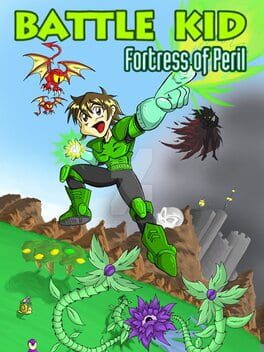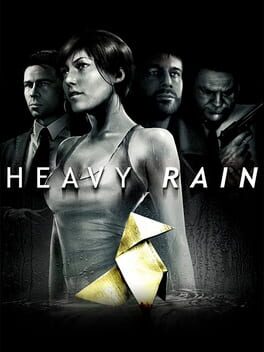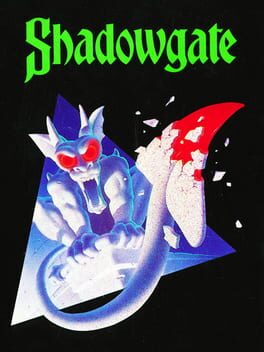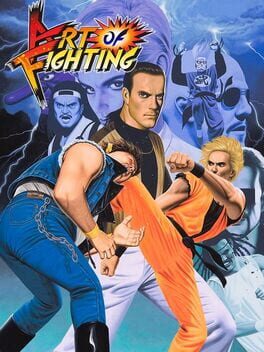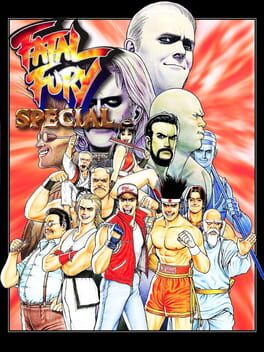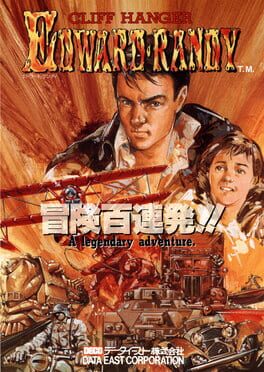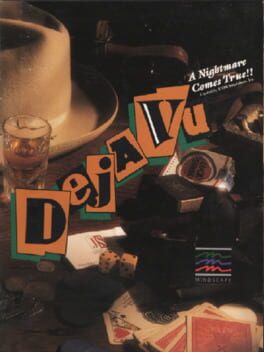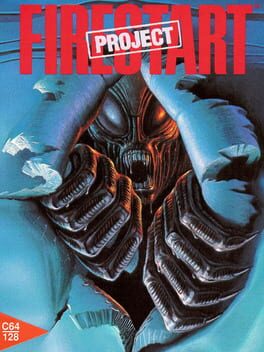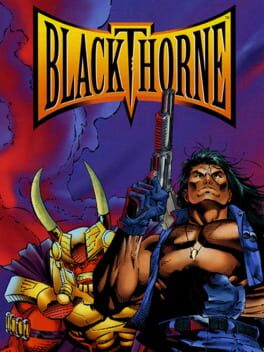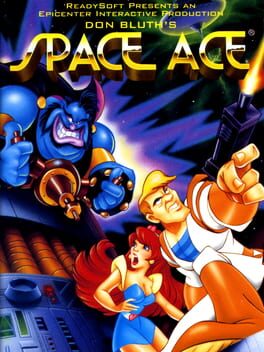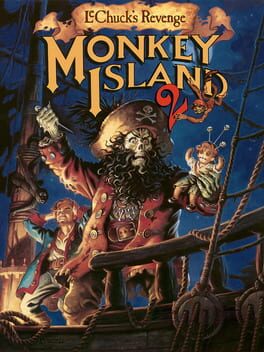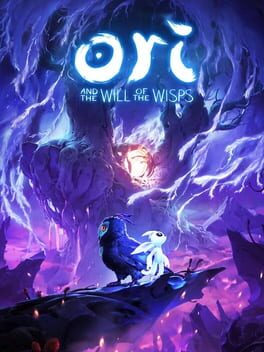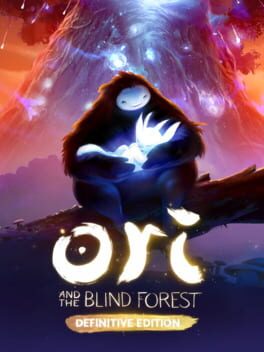Blowing_Wind
This review contains spoilers
Version 2.1 reworks the game's storyline so that it's no longer a kid irresponsibly being sent to defeat a generic bad guy like in Version 1, but instead it seems the developers realized it felt kind of silly so it's made clear the kid (now visibly older too in a more animesque inspired cutscene style) willingly participated in the adventure because the antagonist is a former student friend in the same military academy he goes to (so the kid has experience regarding what he's sent to do) who wanted to be respected and the protagonist wanted to reason with, so there's more personal stakes at play.
The game got (justifiably) easier too, normal mode allows you to take three hits and noticeably a lot of enemies have less abrasive and trollish attacks and some even have more of a telegraph to react from instead of basing everything on a guessing game. However, making it easier sometimes comes at a cost of simplyfing an already straightforward world to explore, namely now the kid can breath underwater forever, so at least two sections of level design had to be removed because they wouldn't make sense in regard to its puzzles.
The game got (justifiably) easier too, normal mode allows you to take three hits and noticeably a lot of enemies have less abrasive and trollish attacks and some even have more of a telegraph to react from instead of basing everything on a guessing game. However, making it easier sometimes comes at a cost of simplyfing an already straightforward world to explore, namely now the kid can breath underwater forever, so at least two sections of level design had to be removed because they wouldn't make sense in regard to its puzzles.
You thought Shinji or the kid from Victory Gundam had it bad with risking his life piloting a mecha despite being a young kid? Here they send a kid that looks even younger into the most dangerous mission ever giving him armor that doesn't protect him from a single hit, complete with facing some of the most annoying boss patterns I've ever seen. If this is already like this I don't imagine playing the whole game in one life in the "unfair mode" XD
Really nice presentation and even if the world is kind of linear for a metroidvania, it's cool to see the ambition for an "aftermarket" NES game. Played on Version 1.1
Really nice presentation and even if the world is kind of linear for a metroidvania, it's cool to see the ambition for an "aftermarket" NES game. Played on Version 1.1
2010
This review contains spoilers
The reason the plot twist reveal feels off with this game is that it uses a main character you actually controled and ended up attributing certain choice decisitions based on the characterization we had about him, so his romance with the mother of one of the kid victims plays in our head differently than what played on the character's. It's a beat cheap regarding the emotional investment, but at the same time it's kind of an original focus regarding the gameplay to not know about who we control, even if there are snippets of his worries about parenthood (like when he cares for the baby at the house of the woman who tried to commit suicide).
But yeah, I would have prefered that instead of this focus on the shocking reveal that we were covering our trails as Scott, the game would have instead make this known from the beginning. It would have been a little difficult to make the mystery from the perspective of the other characters work when we already knew the killer, but from Scott's perspective it would have meant a game where at all times we will be anxious about the double meaning of everything we do, what we were really covering and what we wanted others to see. It would have been more substantial, like a videogame version of the movie Investigation of a Citizen Above Suspicion, from the perspective of someone who even if he does terrible things, does so to prove a point about morality even at his own risk.
Apart from that interesting but underwhelmingly executed idea, this game has issues that keep pilling up. I didn't play this dubbed in spanish (my native language) and I don't know how the acting is in there, but this game really shows the idea that videogames age much more quickly than any other form of media, the character acting in animations is stilted and akward which coupled with the strange voice acting in the original english version gives off a very narmy feel at most moments in the story.
Also there starts to appear some plot holes, like how at the end the character of Madison just becomes telekinetical and starts knowing who the murderer is and where he lives to gather evidence, when she never met him nor did she any investigation; and also knows the FBI agent's phone number to tell him where to go despite also never interacting with him. Some other things also end up being weird, like the main character dreaming with children drowning so that we think he's the killer but that's never explained about his character (and the game puts emphasis on his psychological sessions so you would think they would have explored his blackouts a bit more), and again, it's some gratuitous fodder to think about the mystery and the shocks than actually giving substance to the work.
Anyway, despite my low score, I would like to give my thanks to Kevin for recommending this game because the set pieces are kind of memorable and I like the way the game uses music, especially that piano leitmotif for the kid's father.
But yeah, I would have prefered that instead of this focus on the shocking reveal that we were covering our trails as Scott, the game would have instead make this known from the beginning. It would have been a little difficult to make the mystery from the perspective of the other characters work when we already knew the killer, but from Scott's perspective it would have meant a game where at all times we will be anxious about the double meaning of everything we do, what we were really covering and what we wanted others to see. It would have been more substantial, like a videogame version of the movie Investigation of a Citizen Above Suspicion, from the perspective of someone who even if he does terrible things, does so to prove a point about morality even at his own risk.
Apart from that interesting but underwhelmingly executed idea, this game has issues that keep pilling up. I didn't play this dubbed in spanish (my native language) and I don't know how the acting is in there, but this game really shows the idea that videogames age much more quickly than any other form of media, the character acting in animations is stilted and akward which coupled with the strange voice acting in the original english version gives off a very narmy feel at most moments in the story.
Also there starts to appear some plot holes, like how at the end the character of Madison just becomes telekinetical and starts knowing who the murderer is and where he lives to gather evidence, when she never met him nor did she any investigation; and also knows the FBI agent's phone number to tell him where to go despite also never interacting with him. Some other things also end up being weird, like the main character dreaming with children drowning so that we think he's the killer but that's never explained about his character (and the game puts emphasis on his psychological sessions so you would think they would have explored his blackouts a bit more), and again, it's some gratuitous fodder to think about the mystery and the shocks than actually giving substance to the work.
Anyway, despite my low score, I would like to give my thanks to Kevin for recommending this game because the set pieces are kind of memorable and I like the way the game uses music, especially that piano leitmotif for the kid's father.
1987
I found out the last three adventure games I played on the NES by ICOM originally had a time limit in the PC versions. I have to say that even if the style is a generic fantasy adventure, because Shadowgate retains that mechanic with the use of torches that have limited usage, the game manages to invoke in a more sophisticated way the horror and tension atmosphere that Uninvited on this system didn't have. The game does, however have more bizarre puzzle solutions than Deja Vu or Uninvited, especially incoherent is the one where you use the cloak of an enemy who was killed with fire... to protect yourself from fire.
1992
This review contains spoilers
Yeah... I prefer my fighting game to have a story that could be as simple as this, but at least something that invests me to continue fighting. What a stupid cliffhanger though, it's obvious that's the protagonist's father. The question is why did he kidnap his own daughter?🤣
Real Streets of Rage vibe at times, especially with the detail in the slum and the bar backgrounds and the music overall
Real Streets of Rage vibe at times, especially with the detail in the slum and the bar backgrounds and the music overall
1993
I know shoot em ups have a bad reputation regarding games being considered as art, but I think fighting games, especially those from Japan, come close in being quite similar to each other, also not having the capability to present themselves as an epic experience (think Ikaruga or Silpheed's cinematic flair) and most of them falling into cliché animesque art style, characters and story, and often having an excuse to introduce fan service, like here which has a final match against a characther from another fighting game. I don't care about your pandering, do your own thing, game!
That said, the final match being against a wealthy man who put an orchestra playing in the background of his palace is pretty damn charismathic and unique
That said, the final match being against a wealthy man who put an orchestra playing in the background of his palace is pretty damn charismathic and unique
Feels like a more clunky and less polished version of a cinematic heavy set piece focused action game like the posterior Gunstar Heroes, but it's still very cool presentation-wise
You think the Gunstar Heroes comparison is forced? Then...
You think the Gunstar Heroes comparison is forced? Then...
Extremely barebones and anticlimatically short, it could have used the Deja Vus to paint a more interesting main character. Portopia Serial Murder Case on the Famicom released two years earlier than this game's PC versions is a more unfair gameplay-wise but the mystery can catch you off guard with an element of emotional drama for example. Oh well, at least it's amusing to see what happens when you pull the gun on anyone.
I think I would have appreciated this game more if it didn't feel like a generic film noir
I think I would have appreciated this game more if it didn't feel like a generic film noir
1989
Those monsters look so 50's B movie sci fi level goofy but man if it doesn't keep you on edge when the one that eats all the others appears after some time and chases you non stop everywhere you go on the ship. With how much those monsters were mishandled by all those dead scientists in that research facility I would hold a grudge too though.
If Metroid Fusion already felt like Metroid doing Ridley Scott's Alien, this game is even more directly inspired by it, pretty cool and atmospheric for a '89 game. Instead of hyping up a re-release of that antiquated Atari 2600 system retro gamers should look to find more things like these
If Metroid Fusion already felt like Metroid doing Ridley Scott's Alien, this game is even more directly inspired by it, pretty cool and atmospheric for a '89 game. Instead of hyping up a re-release of that antiquated Atari 2600 system retro gamers should look to find more things like these
1994
It might be a run of the mill macho empowerment fantasy with a main character which doesn't evoke the interesting feel of a cinematic platformer. What draws me into this genre in retro gaming, is that the player is thrown into an hostile environment not just because of hard gameplay but also because of how the atmosphere is built (which this game actually accomplishes really well with grim setpieces, prescence of slavery, and even some semblance of a civil war going on in some levels) and how the main character is realistically fragile instead of your typical videogame dude who withstands millions of hits and jumps like he was in the moon (the main guy here isn't quite like Simon Belmont and controls like in other cinematic platformers for example, though again, he feels like a generic bullet sponge biker from an action movie).
It might be mediocre in that regard, and the game is structured like a level-by-level puzzler just like the first Prince of Persia. The visual narrative and oppresive Another World and the ambitious as hell Flashback were already out by that point, and those two also feel like a more unique experience. But yeah, I'm just happy to play another cinematic platformer with realistic controls and tight puzzles, I hadn't touched one in a long time.
It might be mediocre in that regard, and the game is structured like a level-by-level puzzler just like the first Prince of Persia. The visual narrative and oppresive Another World and the ambitious as hell Flashback were already out by that point, and those two also feel like a more unique experience. But yeah, I'm just happy to play another cinematic platformer with realistic controls and tight puzzles, I hadn't touched one in a long time.
1983
All the problems I mentioned with Dragon's Lair are here but worse. Now they purposely made most decisions have ambiguous angles for the button presses and the reaction times are shorter in addition to excessive visual information. Sorry for complaining, Ori games, this crap takes the cake; Don Bluth's own Titan A.E. may be a pretty bland space adventure movie but at least it's visually readable... Those annoying and distracting continuity errors... The main character gets on your nerves too...
1999
This review contains spoilers
Rosemary's Baby goes wrong, making a ghost town due to the older population's unability to cope with the advance of modernization (and the younger people it took away to other places) and the daily life stress it brought (the drug abuse that conquered this place worked as a way to relieve it, but ended up making the people form the dellusional cult that attempts to lift this circumstance).
@Merkur, how did you figure out the Monkey Wrench puzzle in German? XD I had to look it up online
Relies a lot in nostalgia pandering from the first game bringing in old characters for cameos... But yes, Guybrush is always clinging to his old story all the time to the point of obssession while the new adventures he looks for only lead to a ticket for an amusement park he went to when he was a child. The previous game had a kick for parodying the shameless explotation of a life style (pirating) into a touristic resort not to be taken seriously (Melee Island), so it's an interesting followup to make the new adventure purposely abuse nostalgia.
That said, it's not as inventive as the previous game. The game might have been longer but it's not nearly as memorable. The plot twist could have had more foreshadowing leading up to it, especially because apart from the Star Wars reference and the interesting implication the mindfuck ending brings to the rest of the game, it feels tacked on just to have a way to defeat LeChuck as a final boss (though it is a better final boss than the Looney Tunes-esque final fight in the previous game). At least it gives a reason as to why you get a puzzle solution when you are dreaming, as it could have been a song they used to sing both of you and it got stuck on his head.
Despite Lechuck being revived, it never makes use of the potential tension of having, for example, Largo able to find you at some island when you don't expect it, like Zak McKracken made me jump when I first used one of the items and one of the aliens could materialize right next to you. There's also not anything interesting to replace the original battle system of the first game (where you build up character by Guybrush being a repetitively insulted wimp until you knew how to make comebacks). I just leave this adventure kind of indifferent, sadly.
So... Both Ocarina of Time and Monkey Island 2, games I played recently, want to put emphasis on the loss of childhood and coping, and I find both stumble due to poor execution. Does anyone know a good game exploring this theme that isn't Earthbound?
Relies a lot in nostalgia pandering from the first game bringing in old characters for cameos... But yes, Guybrush is always clinging to his old story all the time to the point of obssession while the new adventures he looks for only lead to a ticket for an amusement park he went to when he was a child. The previous game had a kick for parodying the shameless explotation of a life style (pirating) into a touristic resort not to be taken seriously (Melee Island), so it's an interesting followup to make the new adventure purposely abuse nostalgia.
That said, it's not as inventive as the previous game. The game might have been longer but it's not nearly as memorable. The plot twist could have had more foreshadowing leading up to it, especially because apart from the Star Wars reference and the interesting implication the mindfuck ending brings to the rest of the game, it feels tacked on just to have a way to defeat LeChuck as a final boss (though it is a better final boss than the Looney Tunes-esque final fight in the previous game). At least it gives a reason as to why you get a puzzle solution when you are dreaming, as it could have been a song they used to sing both of you and it got stuck on his head.
Despite Lechuck being revived, it never makes use of the potential tension of having, for example, Largo able to find you at some island when you don't expect it, like Zak McKracken made me jump when I first used one of the items and one of the aliens could materialize right next to you. There's also not anything interesting to replace the original battle system of the first game (where you build up character by Guybrush being a repetitively insulted wimp until you knew how to make comebacks). I just leave this adventure kind of indifferent, sadly.
So... Both Ocarina of Time and Monkey Island 2, games I played recently, want to put emphasis on the loss of childhood and coping, and I find both stumble due to poor execution. Does anyone know a good game exploring this theme that isn't Earthbound?
This review contains spoilers
To be honest, I prefer the first game. Its approach in the form of a very solitary adventure with occasional narration and expository fairy made the story have its own unique presentation, simple as it was
Ori 2 wants to go grander but doesn't quite achieve what it wants to do for most of its duration. Not only most of the "new" mechanics are obviously inspired by Hollow Knight, the presentation is too as the world is more lively with other NPCs. But what HK did with its world is having the NPCs be ones with an arc of their own, dynamically progressing in development as you encounter them across the adventure. Yes, HK grabs a lot from Dark Souls and adapts it into a bug world (name me an element of Hollow Knight's worldbuilding and I assure you in a 90% chance there's a similar element in Miyazaki's game), but it still knew how to handle its mood, you figure out things that are happening and interpret them by yourself.
Ori 2 to tell its simpler story wants to inflate its lenght by having these cute (there's a shoebill in this ♥️), bland non main character NPCs that don't have much characterization and at most their appeal bogs down to them giving you items (I was so pissed when I beat the optional area where you give the wandering shoebill the amulet and it only gives you a clue to a 25% damage reduction powerup as a reward, nothing thematically interesting about the place or even something personal about this character like I would have wanted) or more memorably, dying at one point or another (the frog that gets possessed is plot sensationalism that doesn't add anything because that character doesn't grow on you, nor did he do anything in the adventure up to that point other than tell you where to go). AND it also wants to have the narration that explains things from the previous game. AND it also gives you a exposition fairy a third through the game. It wants to have all these elements and it feels like it is overexplaining a story that is already not that complex.
This way, if not for the competent gameplay (though again, the challenge absolutely pales in comparison to other metroidvanias, despite not having the save state every two steps like the previous game I died less here than in Ori 1) I would have been extremely bored with everything in the adventure that wasn't the beggining, exact middle and end. I was ready to give this a 5/10 because of most of the game.
But well, the beggining again uses that storytelling technique from Ori 1. An horizontal long tracking shot across time (https://youtu.be/de83VL5FVMs starting at 2:14) that reminds me of something Mamoru Hosoda would do in Wolf Children (https://youtu.be/2t_0JtQExQ0). The game introduces the theme of acceptance that again will be discussed using its villain later on, as both Ori's half sister and the new evil owl have birth defects. Ku has the assistance of its family, while Shriek was an orphan since birth and no one took care of it until it became a lonely, grotesque scavenger. If you hear anything interesting from NPCs, it's usually going to be things that explain this villain's backstory.
The game starts with more personal stakes than global ones, which makes attatchment to Ku much easier just like the Doraemon movie released the same year as this game dealt with taking care of a disabled animal that can't fly with emphasis on mutual inspiration for overcoming things despite the physical difficulty (https://youtu.be/WgW1yAAwYu4). The plot stalls since they end up in another island and separate from each other until the middle, since you are just looking for the half sister.
At that point, the main character's little owl sister dies. Because of how cheap death was in the previous game, this twist didn't convince me because as soon as it happened I thought "they are gonna revive her". Of course they confirmed and explained it in the following cutscene, so at least it wasn't an ass pull like Naru's revival in Ori 1. But the way they revive her is still extremely stupid, they will return the light to this new island by reviving its tree like we revived it in the previous game. But didn't the previous game show that beings make of darkness, like Ku, die when the light spreads? It's how the rest of Ku's biological family died!
But well, apart from that inconsistency (the frog doesn't revive because its body is not there anymore, I don't think it's something to consider) there is an inspiration here just like the Doraemon movie. Almost at the end, you find out that eventually all trees die, and another one from other island will send a spirit to recover light from the island where it died.
It is still a very convenient prophecy as you and Ku reaching the island was on complete accident but still, what's extremely interesting is that it implies there was a natural end to things back at the original game's island, and afterwards, that Ori must SACRIFICE HIMSELF and turn into a new tree to revive what has decayed.
The ending blew my mind, the Owl villain goes to die away under the statues of her parents, denying warmth from everyone else until her very demise, and finding solace under what was the only "family" it ever had (very interesting that they don't choose to redeem the villain this time around, it would be unnatural that she would turn good if her whole life she was an antisocial outcast who forced herself not to love). Ori meanwhile achieved trascendance and by becoming the new tree, technically made the whole island his family, even if like the statues to Shriek, he won't be able to directly communicate with them anymore. It is his warmth that will be felt by everyone. The inspiration to make his sister recover after he survived that encounter at the middle of the adventure because she took his place, ended up making everything recover. It's not applicable to our lives as Doraemon's treatment of the subject; but it is quite a poetic contrast still conveyed in a very emotional manner.
Ori 2 wants to go grander but doesn't quite achieve what it wants to do for most of its duration. Not only most of the "new" mechanics are obviously inspired by Hollow Knight, the presentation is too as the world is more lively with other NPCs. But what HK did with its world is having the NPCs be ones with an arc of their own, dynamically progressing in development as you encounter them across the adventure. Yes, HK grabs a lot from Dark Souls and adapts it into a bug world (name me an element of Hollow Knight's worldbuilding and I assure you in a 90% chance there's a similar element in Miyazaki's game), but it still knew how to handle its mood, you figure out things that are happening and interpret them by yourself.
Ori 2 to tell its simpler story wants to inflate its lenght by having these cute (there's a shoebill in this ♥️), bland non main character NPCs that don't have much characterization and at most their appeal bogs down to them giving you items (I was so pissed when I beat the optional area where you give the wandering shoebill the amulet and it only gives you a clue to a 25% damage reduction powerup as a reward, nothing thematically interesting about the place or even something personal about this character like I would have wanted) or more memorably, dying at one point or another (the frog that gets possessed is plot sensationalism that doesn't add anything because that character doesn't grow on you, nor did he do anything in the adventure up to that point other than tell you where to go). AND it also wants to have the narration that explains things from the previous game. AND it also gives you a exposition fairy a third through the game. It wants to have all these elements and it feels like it is overexplaining a story that is already not that complex.
This way, if not for the competent gameplay (though again, the challenge absolutely pales in comparison to other metroidvanias, despite not having the save state every two steps like the previous game I died less here than in Ori 1) I would have been extremely bored with everything in the adventure that wasn't the beggining, exact middle and end. I was ready to give this a 5/10 because of most of the game.
But well, the beggining again uses that storytelling technique from Ori 1. An horizontal long tracking shot across time (https://youtu.be/de83VL5FVMs starting at 2:14) that reminds me of something Mamoru Hosoda would do in Wolf Children (https://youtu.be/2t_0JtQExQ0). The game introduces the theme of acceptance that again will be discussed using its villain later on, as both Ori's half sister and the new evil owl have birth defects. Ku has the assistance of its family, while Shriek was an orphan since birth and no one took care of it until it became a lonely, grotesque scavenger. If you hear anything interesting from NPCs, it's usually going to be things that explain this villain's backstory.
The game starts with more personal stakes than global ones, which makes attatchment to Ku much easier just like the Doraemon movie released the same year as this game dealt with taking care of a disabled animal that can't fly with emphasis on mutual inspiration for overcoming things despite the physical difficulty (https://youtu.be/WgW1yAAwYu4). The plot stalls since they end up in another island and separate from each other until the middle, since you are just looking for the half sister.
At that point, the main character's little owl sister dies. Because of how cheap death was in the previous game, this twist didn't convince me because as soon as it happened I thought "they are gonna revive her". Of course they confirmed and explained it in the following cutscene, so at least it wasn't an ass pull like Naru's revival in Ori 1. But the way they revive her is still extremely stupid, they will return the light to this new island by reviving its tree like we revived it in the previous game. But didn't the previous game show that beings make of darkness, like Ku, die when the light spreads? It's how the rest of Ku's biological family died!
But well, apart from that inconsistency (the frog doesn't revive because its body is not there anymore, I don't think it's something to consider) there is an inspiration here just like the Doraemon movie. Almost at the end, you find out that eventually all trees die, and another one from other island will send a spirit to recover light from the island where it died.
It is still a very convenient prophecy as you and Ku reaching the island was on complete accident but still, what's extremely interesting is that it implies there was a natural end to things back at the original game's island, and afterwards, that Ori must SACRIFICE HIMSELF and turn into a new tree to revive what has decayed.
The ending blew my mind, the Owl villain goes to die away under the statues of her parents, denying warmth from everyone else until her very demise, and finding solace under what was the only "family" it ever had (very interesting that they don't choose to redeem the villain this time around, it would be unnatural that she would turn good if her whole life she was an antisocial outcast who forced herself not to love). Ori meanwhile achieved trascendance and by becoming the new tree, technically made the whole island his family, even if like the statues to Shriek, he won't be able to directly communicate with them anymore. It is his warmth that will be felt by everyone. The inspiration to make his sister recover after he survived that encounter at the middle of the adventure because she took his place, ended up making everything recover. It's not applicable to our lives as Doraemon's treatment of the subject; but it is quite a poetic contrast still conveyed in a very emotional manner.
This review contains spoilers
Two days ago I completed a game animated by Don Bluth, Dragon's Lair, but if I'm sincere something that has the vibe and QUALITY of a dark Bluth work ala Secret of Nimh is this one, Ori and the Blind Forest
A simple but dark fairytale where the survival of a forest of light depends on casting outside the dark, and with that, the creatures made of it, so the entire game is trying to restore the capacity to survive while going against one of those creatures, whose newborns were anhiliated by their opposite element just for being made of darkness. It's a sad set up with a rather bittersweet ending to the antagonist which comes together pretty nicely under some very adrenalinic and intense moments
The reason this isn't a 7/10 however is because the whole finale is built up around the adoptive mother of the protagonist reviving with a certain mcguffin which wasn't specified to have this property. This feels rather cheap especially because of the beautifully directed opening "montage" of the lives of mother and son. Imagine if Ellie was revived around the finale of Disney Pixar's Up (another work with a great montage at the beginning that visually comunicates all the warmth that across time faded), that's how I felt. If it didn't have that, the finale would have hit a lot harder than just having her show up to remind the owl of the sacrifice that is motherhood
I also want to say, regarding my brother's hypes that this was better than Hollow Knight, I think that Team Cherry's posterior effort is a game that's much more in depht, gameplay wise (seriously, Ori is a baby's first metroidvania for how easy it is) and lore wise (a children's animated movie vs the deciphering of a kingdom in ruins), and the marrying of these two together ala Dark Souls, and as such it would still be a better all around game compared to the more simpler beauty of Ori as a whole even if the faults on the story were solved (though I still think the more concise visual information and limited color pallete of HK is easier to read than Ori's attention to detail in the environments, particularly noticeable when climbing the tree and teleporting around the screen), which is not a bad thing, Ori is still an adequate work of art and both have their charm.
A simple but dark fairytale where the survival of a forest of light depends on casting outside the dark, and with that, the creatures made of it, so the entire game is trying to restore the capacity to survive while going against one of those creatures, whose newborns were anhiliated by their opposite element just for being made of darkness. It's a sad set up with a rather bittersweet ending to the antagonist which comes together pretty nicely under some very adrenalinic and intense moments
The reason this isn't a 7/10 however is because the whole finale is built up around the adoptive mother of the protagonist reviving with a certain mcguffin which wasn't specified to have this property. This feels rather cheap especially because of the beautifully directed opening "montage" of the lives of mother and son. Imagine if Ellie was revived around the finale of Disney Pixar's Up (another work with a great montage at the beginning that visually comunicates all the warmth that across time faded), that's how I felt. If it didn't have that, the finale would have hit a lot harder than just having her show up to remind the owl of the sacrifice that is motherhood
I also want to say, regarding my brother's hypes that this was better than Hollow Knight, I think that Team Cherry's posterior effort is a game that's much more in depht, gameplay wise (seriously, Ori is a baby's first metroidvania for how easy it is) and lore wise (a children's animated movie vs the deciphering of a kingdom in ruins), and the marrying of these two together ala Dark Souls, and as such it would still be a better all around game compared to the more simpler beauty of Ori as a whole even if the faults on the story were solved (though I still think the more concise visual information and limited color pallete of HK is easier to read than Ori's attention to detail in the environments, particularly noticeable when climbing the tree and teleporting around the screen), which is not a bad thing, Ori is still an adequate work of art and both have their charm.
